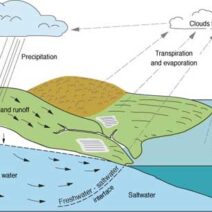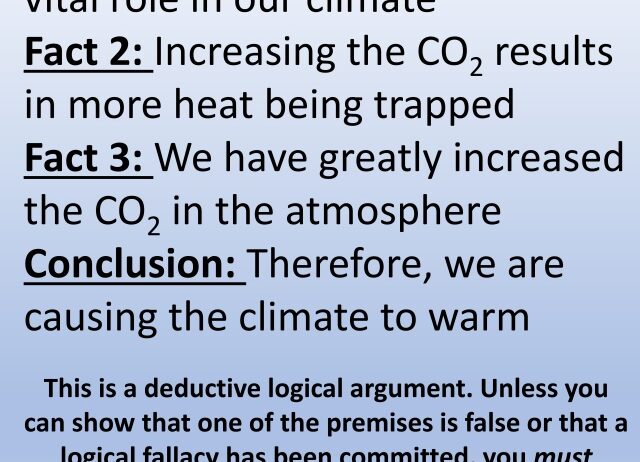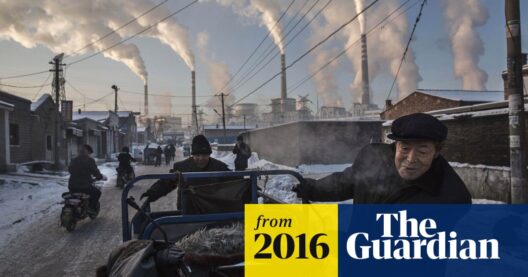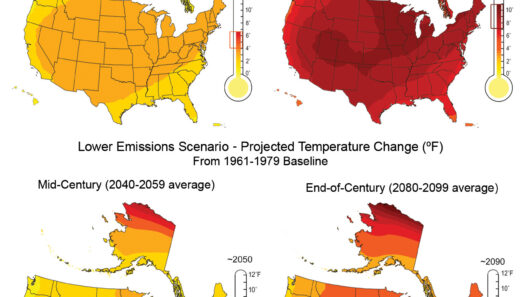In contemporary discourse surrounding climate change, the notion that global warming might yield commendable outcomes often surfaces. This speculation attempts to offer a silver lining to a phenomenon that predominantly engenders alarm across the scientific community. However, this multi-faceted issue requires an objective examination beyond the simplistic premise that global warming might confer advantages. Understanding the complex interactions between climate systems and their repercussions on our planet is crucial for dispelling these misconceptions.
One prevalent argument suggesting that global warming could be beneficial hinges on agricultural productivity. Proponents claim that elevated temperatures may extend growing seasons in certain regions, allowing for increased crop yields. While it is true that climate change can alter agricultural zones, the overarching reality is vastly more complicated. Enhanced temperatures may lead to soil degradation, increased evaporation rates, and heightened pest infestations. In fact, the Food and Agriculture Organization has warned that climate change will disproportionately affect developing nations, where food stability is already precarious. The potential for benefits in crop yields masks a greater, looming threat: food insecurity on a global scale.
Moreover, the argument often extends to the notion that melting Arctic ice will open new shipping routes and enhance resource extraction opportunities. While it is true that navigational routes such as the Northern Sea Route may become more accessible, the environmental ramifications are profound and troubling. The melting of polar ice caps contributes to rising sea levels, which poses existential threats to coastal cities worldwide. Furthermore, increased shipping traffic in sensitive Arctic ecosystems is likely to lead to pollution, invasive species, and catastrophic oil spills, undermining the ecological integrity of these pristine environments.
Another dimension often highlighted is the notion of increased biodiversity in warmer climates. Advocates posit that some species may flourish due to altered habitats. Yet, this perspective neglects the irrefutable evidence that many species cannot adapt swiftly enough to the rapid changes imposed by climate change. The extinction rate is accelerating at an alarming pace, with scientists projecting that up to one million species may face extinction in the coming decades. This extinction crisis drastically undermines planetary biodiversity, which plays a pivotal role in ecosystem stability and resilience.
As the climate continues to warm, the increased frequency and intensity of weather events merits contemplation. Some may argue that a warmer world could bring milder winters, leading to reduced heating costs. However, this perspective overlooks the devastating consequences of intensified hurricanes, floods, droughts, and wildfires that are exacerbated by climate change. The economic costs of these disasters frequently outweigh any hypothetical savings from milder weather. Property damage, infrastructure loss, and humanitarian crises all culminate in staggering financial burdens that disproportionately impact vulnerable populations.
Additionally, let us consider human health in the context of a warming planet. Some individuals assert that warmer temperatures will lead to fewer winter-related health issues. What they fail to account for, however, is the plethora of health risks associated with heatwaves, poor air quality, and the proliferation of vector-borne diseases such as malaria and dengue fever. Climate change is intricately linked to the expansion of disease vectors, directly correlating with rising incidences of illnesses that thrive in warmer temperatures. The ramifications for public health are profound, necessitating immediate attention and decisive action.
Furthermore, the economic implications of climate change warrant scrutiny. While certain industries, such as agriculture and tourism, may find transient advantages, the broader economy is invariably compromised. Climate change precipitates volatility in markets, supply chain disruptions, and increased costs related to disaster preparedness and recovery. The interconnectivity of global economies means that the financial repercussions extend far beyond the regions directly impacted by climate phenomena, emphasizing the urgent need for comprehensive climate action.
On a grander scale, the philosophical implications of attempting to frame global warming as beneficial raise significant ethical questions. Climate change is predominantly driven by human activity, particularly the combustion of fossil fuels, deforestation, and industrial processes. Should we grapple with justifying a phenomenon that inherently leads to suffering and ecological disarray? This moral quandary compels us to consider our collective responsibility and the ethical ramifications of inaction.
Ultimately, addressing the question of whether global warming can be deemed ‘good’ reveals an intricate tapestry of interconnected consequences. The arguments positing potential benefits overlook the extensive body of scientific evidence underscoring the catastrophic impacts of climate change. As the global community continues to wrestle with this pressing issue, it is essential to foster a more nuanced dialogue that recognizes the gravity of the situation.
Public engagement is paramount. Education plays a pivotal role in dismantling misconceptions and prompting collective action. Communities must be galvanized around the imperative for sustainable practices, conservation efforts, and advocacy for systemic change. As the stakes grow higher, individuals, organizations, and governments must come together to confront the reality of climate change with unwavering determination and a sense of shared responsibility.
In conclusion, the ramifications of global warming extend far beyond fleeting notions of potential benefits. The time for complacency has passed. In recognizing the dire implications of a warming planet, a unified approach is no longer just desirable; it is imperative to safeguard our planet for future generations. Ignoring the realities of climate change by clinging to misguided beliefs will not lead to sustainable solutions but rather further exacerbate the challenges we face. The path ahead demands a commitment to actionable change, informed dialogue, and a resolute acknowledgment of the urgency of the situation.








